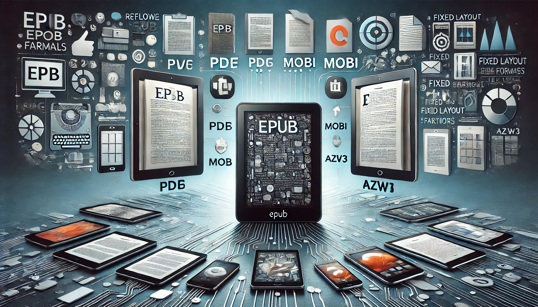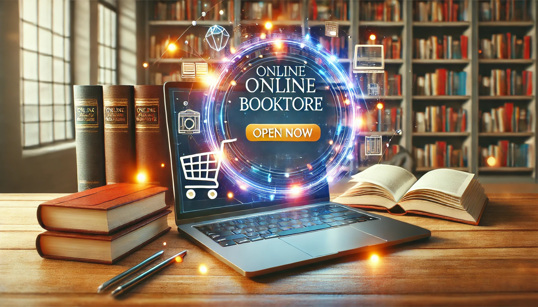E-books are transforming reading with their accessibility, affordability, and eco-friendly benefits, making them the future of literature.
The Future of Reading: How E-Books Are Transforming the Literary World

The way we read has evolved dramatically over the past few decades. With the rise of digital technology, e-books have become a revolutionary force in the literary world, offering convenience, accessibility, and sustainability. In this article, we’ll explore how e-books are reshaping reading habits and why they represent the future of literature.
1. Accessibility Anytime, Anywhere
One of the biggest advantages of e-books is their accessibility. Readers no longer need to carry heavy books or visit a bookstore to get their favorite titles. With just a smartphone, tablet, or e-reader, they can access thousands of books instantly. This convenience has made reading more practical for students, professionals, and casual readers alike.
2. Cost-Effective and Budget-Friendly
E-books are often more affordable than physical books. Many publishers offer discounts, and numerous classic titles are available for free. Subscription services also allow unlimited access to a vast library for a fixed monthly fee, making reading more economical than ever.
3. Eco-Friendly and Sustainable
Digital books contribute to environmental sustainability. The production of paper books involves deforestation and high energy consumption. By switching to e-books, readers help reduce paper waste, carbon footprints, and the overall impact on the environment.
4. Customizable Reading Experience
Unlike physical books, e-books allow readers to adjust font sizes, background colors, and brightness levels, making reading more comfortable. This feature is especially beneficial for those with visual impairments or reading difficulties.
5. Instant Access to a Global Library
E-books eliminate geographical barriers. Readers can instantly purchase or borrow books from international stores and libraries, making knowledge and literature more accessible worldwide. This global reach has empowered self-published authors and independent publishers to reach broader audiences.
6. Interactive and Multimedia Features
E-books can integrate multimedia elements like audio, video, and hyperlinks, enhancing the reading experience. Educational books, in particular, benefit from interactive elements that make learning more engaging and effective.
Conclusion
E-books are revolutionizing the way we consume literature. They offer unmatched convenience, affordability, and sustainability, making them an essential part of the modern reading experience. As technology continues to advance, e-books will play an even bigger role in the future of publishing. Whether you’re an avid reader or just starting your literary journey, embracing e-books is a smart choice for the digital age.
Share this post:





0 Comments